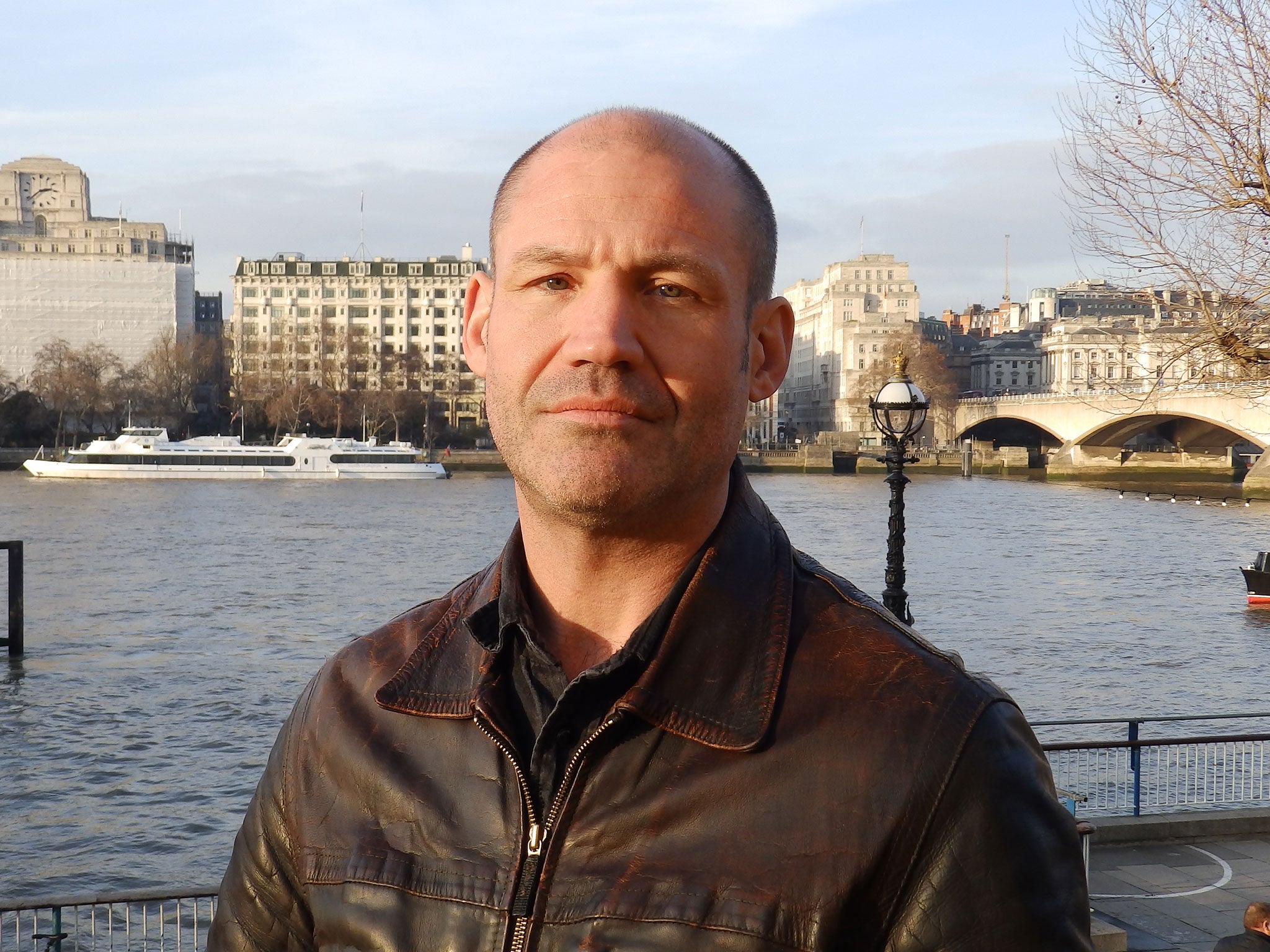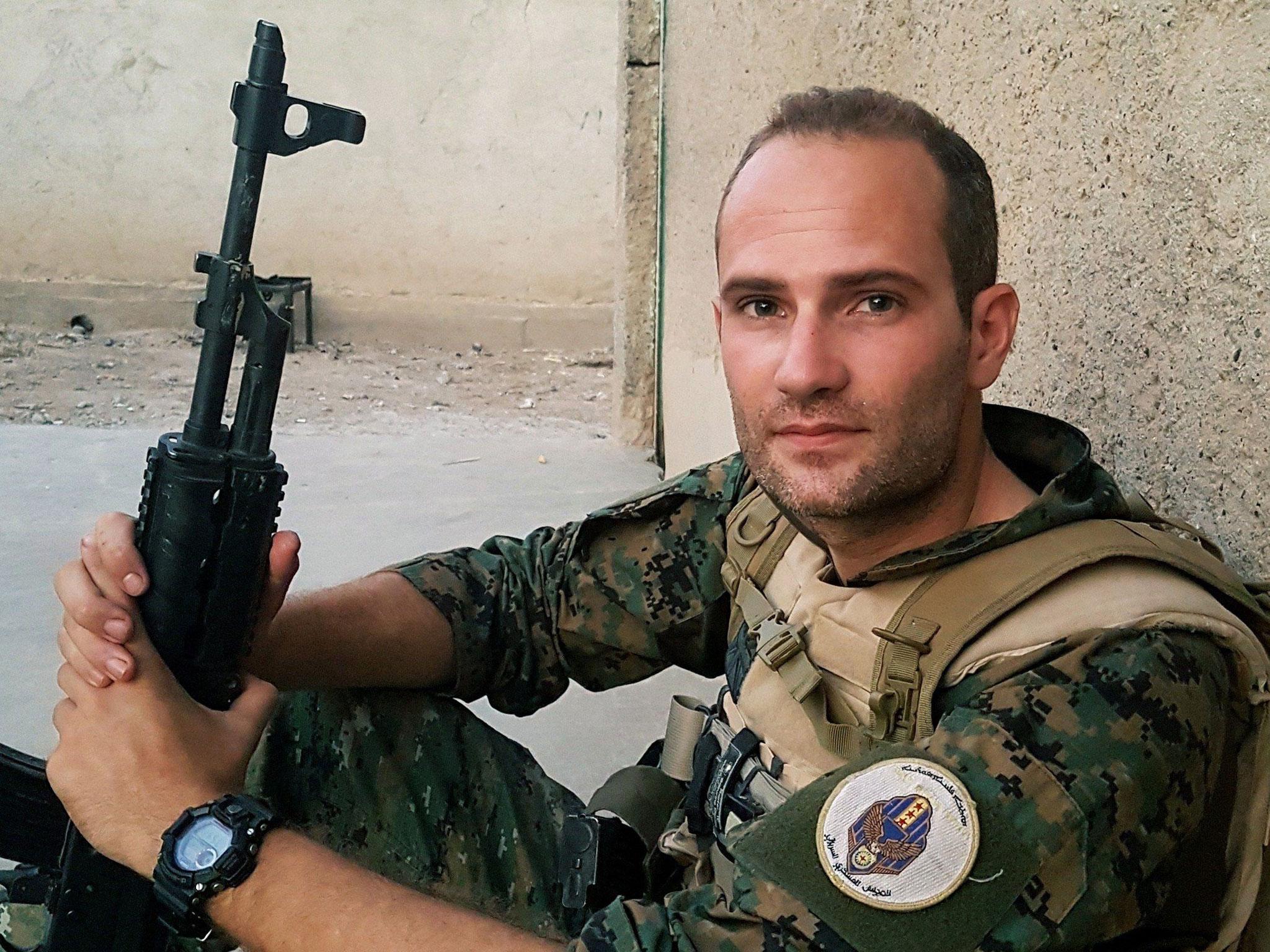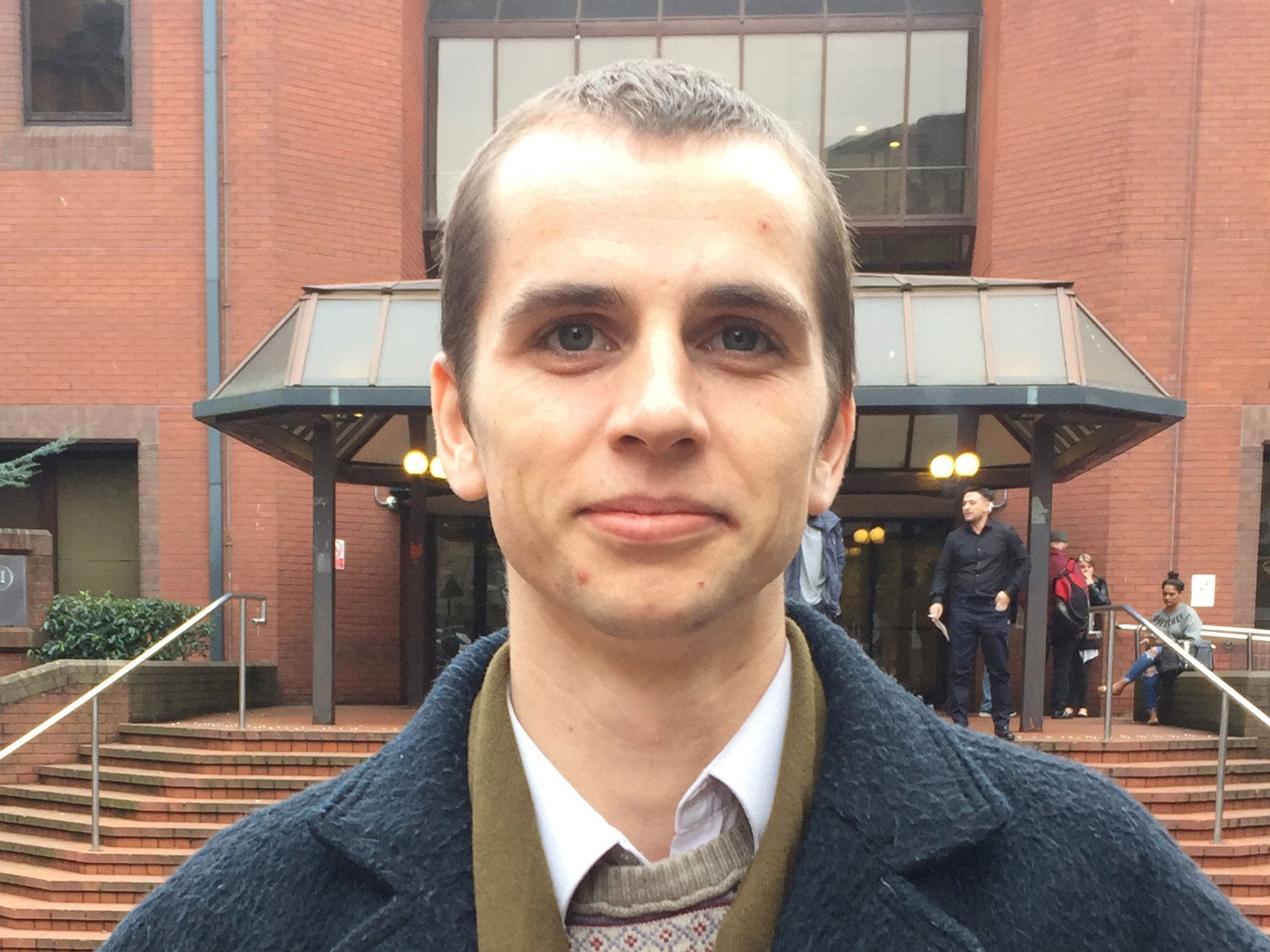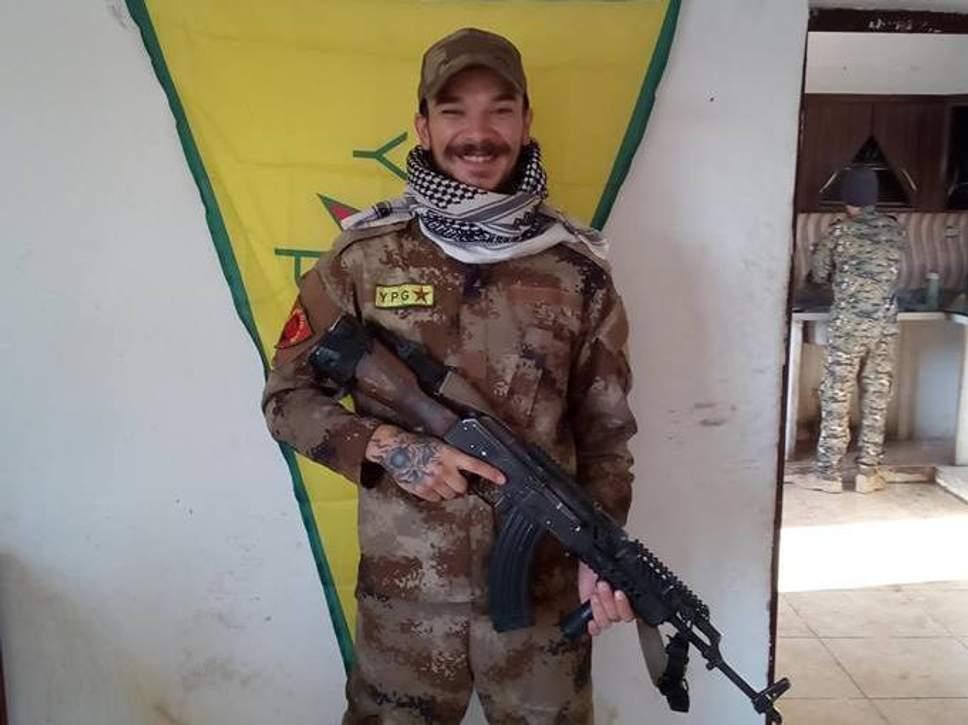British volunteers who fought against Isis ‘harassed by security services’ for years
Exclusive: ‘I’m trying to live a normal life, I’ve done nothing wrong,’ says former British soldier who had charges dropped

Your support helps us to tell the story
From reproductive rights to climate change to Big Tech, The Independent is on the ground when the story is developing. Whether it's investigating the financials of Elon Musk's pro-Trump PAC or producing our latest documentary, 'The A Word', which shines a light on the American women fighting for reproductive rights, we know how important it is to parse out the facts from the messaging.
At such a critical moment in US history, we need reporters on the ground. Your donation allows us to keep sending journalists to speak to both sides of the story.
The Independent is trusted by Americans across the entire political spectrum. And unlike many other quality news outlets, we choose not to lock Americans out of our reporting and analysis with paywalls. We believe quality journalism should be available to everyone, paid for by those who can afford it.
Your support makes all the difference.Volunteers who fought against Isis in Syria have accused British authorities of treating them like terrorists as part of a “hypocritical” campaign of harassment.
The Independent understands that at least one person has left the UK because of alleged interference by the security services.
Dozens of Brits joined the Kurdish People’s Protection Units (YPG) from 2014 onwards, as they were supported by a US-led military coalition to push Isis out of its self-declared caliphate.
Eight British volunteers with the group – seven men and one woman – were killed in Syria.
The vast majority of those who survived the fighting have returned to Britain but found themselves repeatedly stopped and questioned, and in some cases arrested for terror offences.
After several failed attempts to prosecute people who fought for the YPG, Aidan James became the first volunteer to be convicted this month.
The 28-year-old was jailed for a year for attending a training camp operated by the banned Kurdistan Workers’ Party (PKK) in Iraq, although he did not fight for the group.
The Crown Prosecution Service (CPS) initially charged him with preparing acts of terrorism by travelling to Syria to join the YPG but a judge found that he had “no case to answer”.
Mr Justice Edis noted the Kurdish group was “supporting the policy of the UK and other allies by fighting Isis” and was backed by RAF airstrikes.
The judge told the Old Bailey that fighting alongside the YPG “was not terrorism at all” under current laws.
His remarks sparked fresh allegations of hypocrisy against security services, who have continued to arrest and monitor returning volunteers.
A former soldier who had terror charges against him dropped in July 2018 after a two-year investigation said he is still routinely stopped at air and sea ports.
James Matthews was originally accused of violating laws against attending places providing “instruction for purposes connected to the preparation of terrorism” by undergoing YPG training.
The 44-year-old, who wrote a book called Fighting Monsters documenting his experiences, described feeling “like a guinea pig” during protracted legal proceedings and accused the CPS of repeatedly changing their reasoning.
“I hoped that when my charges were dropped there would be a rethink by the authorities… but I’ve got no doubt that I’m being monitored,” he told The Independent.
Mr Matthews said he has been stopped under Schedule 7 of the Terrorism Act while returning to Britain from the EU, having his phone and laptop seized.
Officers visited his sister’s house in June and questioned her on his whereabouts and activities, leaving her “upset, confused and frightened”.
Mr Matthews said his solicitor had written to police demanding an explanation but received no reply, and called the experience “extremely demoralising”.
“I’m trying to live a normal life, I’ve done nothing wrong, the charges were dropped,” he added.
“I want them to take me off a list and leave me alone but I don’t think they will stop at all.
“There is no consistency in their approach on this with different YPG fighters, and there are no explanations.”
Another former YPG volunteer, who did not want to be named, said he had left the UK after being “harassed” by security services despite being released with no further action following a police investigation.
He believes an intelligence agency in the country where he now lives was warned of his presence by London, but has not classed him as a threat.

A fellow ex-YPG fighter, who goes by the name Macer Gifford, called Britain’s policy on returning volunteers “incoherent”.
The 32-year-old said he was recently refused a US visa because of his travel to Syria and gets stopped under Schedule 7 every time he passes through an airport.
“I volunteer up my passwords, I’m incredibly open and honest with them and they’ve never seen fit to prosecute me,” he added.
Mr Gifford, who said he stopped fighting in 2017, believes he was not charged because of high-profile interviews he has given to media outlets.
He said the CPS had “tried everything in the rulebook” to prosecute other YPG volunteers, and hit out at a lack of support for those who have been injured, traumatised or reduced to poverty.
“I’ve never felt like a terrorist, I’ve never been a terrorist, and the fact that international volunteers have found themselves in court and their lives ripped apart is shocking,” he added.
“We fought against Isis and wanted to do the right thing.”
Joshua Walker, a student who joined the YPG in 2016, was arrested on his return to Gatwick airport 18 months later.

He was not prosecuted for his activities in Syria but instead charged with a terror offence for possessing a copy of The Anarchist Cookbook.
A jury acquitted him after hearing Mr Walker downloaded the document, which contains bomb-making instructions, for a role-playing society at the University of Aberystwyth.
Mr Walker told The Independent that months after he was cleared in October 2017, he was contacted by the Prevent counter-extremism programme.
“I basically told them in polite terms to f*** off and leave me alone,” he said.
“I told them I’ve been adjusting back to a normal life and being constantly hassled doesn’t help. They’ve left me alone since then.”
Mr Walker said he has not been stopped by police while travelling for holidays in Ireland and France but believes he has “been lucky” compared to his fellow YPG volunteers.
The 29-year-old has returned to university to continue his degree in international politics and strategic studies, but fears future problems obtaining visas and called British authorities’ approach to the YPG “deeply hypocritical”.
He said a German volunteer he knew was prevented from entering the UK on security grounds for the funeral of British fighter Jac Holmes in 2017.

Some YPG fighters have suggested that political pressure from Turkey, which considers the organisation a terrorist group, could be driving the continued efforts.
But the CPS and police have insisted they are acting independently according to the law, and the government has repeatedly said anyone returning from Syria would be investigated.
Alastair Lyon, a solicitor who represented Mr Matthews and other YPG volunteers, said at least one fresh arrest has been made this year.
“It’s impossible to see what remotely plausible possible public interest there could be for it,” said the lawyer, of Birnberg Peirce.
“Undoubtedly the police and CPS made a terrible error in considering any of these cases to be terrorism and they need to stop.”
Mr Lyon said the problem was being driven by the definition of terrorism in British law as the use or threat of action “for the purpose of advancing a political, religious or ideological cause”.
“It’s so broad that basically it defines as terrorism any form of military or quasi-military action anywhere in the world that isn’t the behest of a state,” he added.
He said Mr Justice Edis’s comments on the YPG “should be a very clear indication for the police and CPS to leave these people alone”.
The government has said that anyone who takes part in conflict in Syria or Iraq will be investigated to determine if they have committed criminal offences “and to ensure that they do not pose a threat to our national security”.
Join our commenting forum
Join thought-provoking conversations, follow other Independent readers and see their replies
Comments